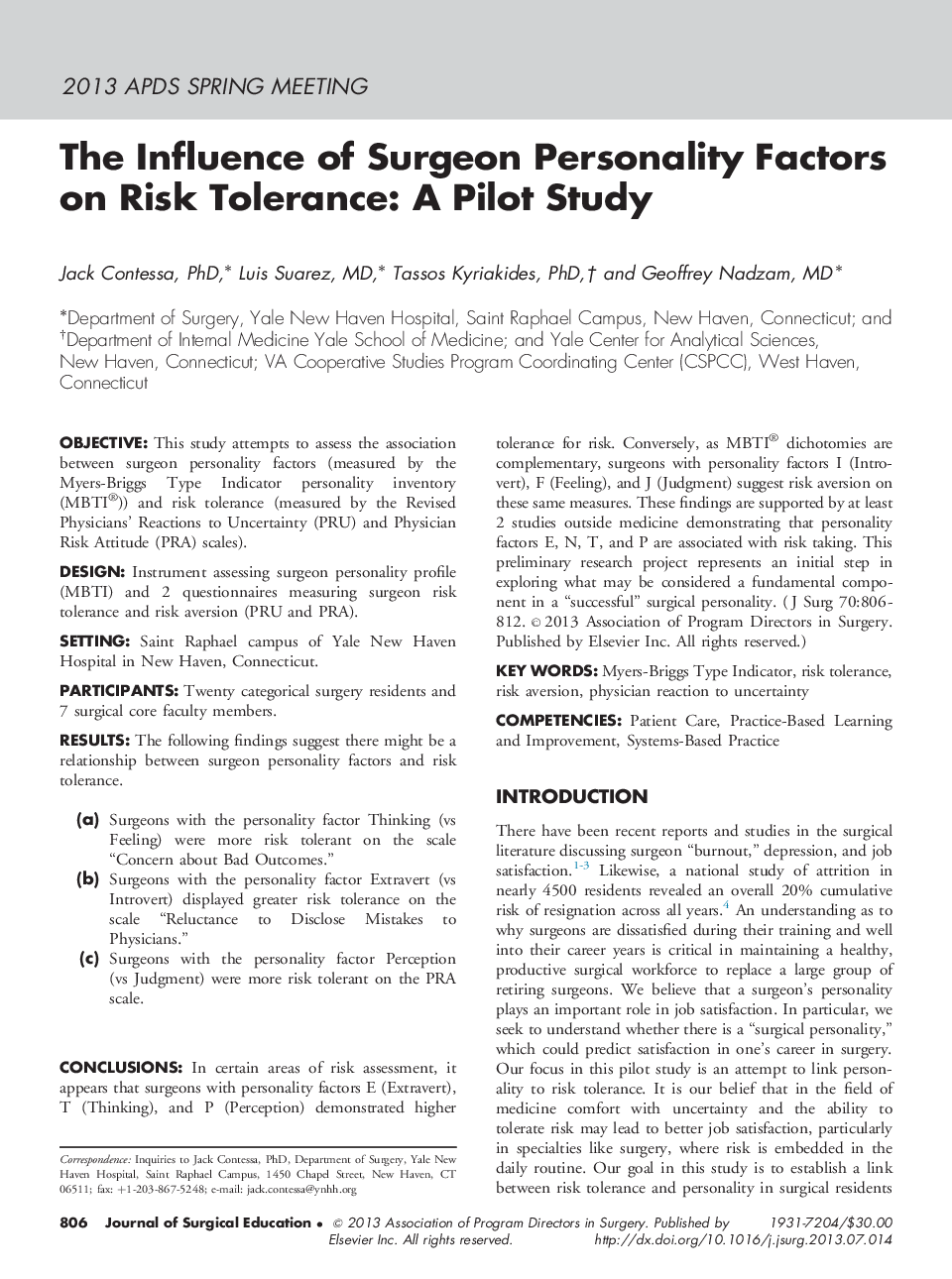| Article ID | Journal | Published Year | Pages | File Type |
|---|---|---|---|---|
| 4297999 | Journal of Surgical Education | 2013 | 7 Pages |
ObjectiveThis study attempts to assess the association between surgeon personality factors (measured by the Myers-Briggs Type Indicator personality inventory (MBTI®)) and risk tolerance (measured by the Revised Physicians’ Reactions to Uncertainty (PRU) and Physician Risk Attitude (PRA) scales).DesignInstrument assessing surgeon personality profile (MBTI) and 2 questionnaires measuring surgeon risk tolerance and risk aversion (PRU and PRA).SettingSaint Raphael campus of Yale New Haven Hospital in New Haven, Connecticut.ParticipantsTwenty categorical surgery residents and 7 surgical core faculty members.ResultsThe following findings suggest there might be a relationship between surgeon personality factors and risk tolerance.(a)Surgeons with the personality factor Thinking (vs Feeling) were more risk tolerant on the scale “Concern about Bad Outcomes.”(b)Surgeons with the personality factor Extravert (vs Introvert) displayed greater risk tolerance on the scale “Reluctance to Disclose Mistakes to Physicians.”(c)Surgeons with the personality factor Perception (vs Judgment) were more risk tolerant on the PRA scale.ConclusionsIn certain areas of risk assessment, it appears that surgeons with personality factors E (Extravert), T (Thinking), and P (Perception) demonstrated higher tolerance for risk. Conversely, as MBTI® dichotomies are complementary, surgeons with personality factors I (Introvert), F (Feeling), and J (Judgment) suggest risk aversion on these same measures. These findings are supported by at least 2 studies outside medicine demonstrating that personality factors E, N, T, and P are associated with risk taking. This preliminary research project represents an initial step in exploring what may be considered a fundamental component in a “successful” surgical personality.
